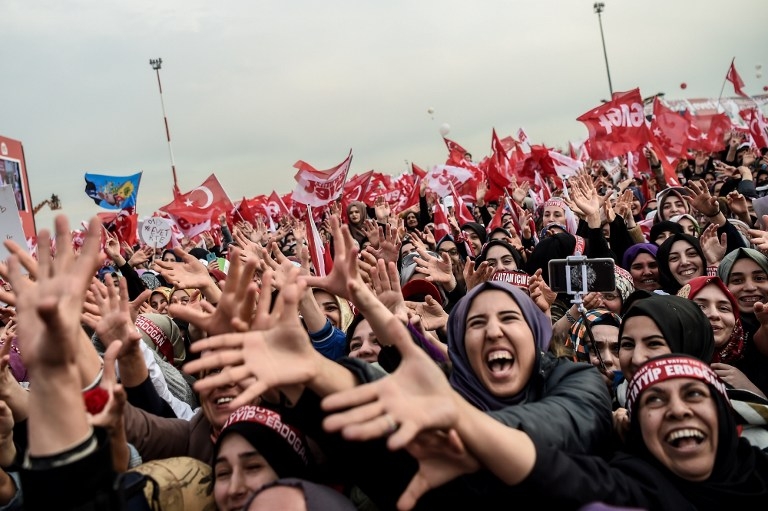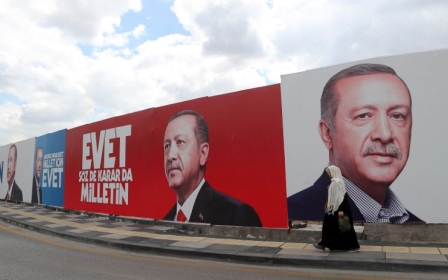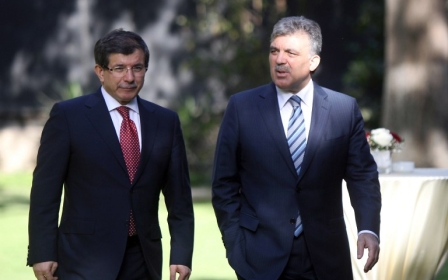Turkey's future: The West’s mounting Erdoganophobia

On 21 January 2017, the Turkish parliament endorsed the bill of constitutional reform by 339 votes – nine more than the 330 required.
Nonetheless, Turkey’s main opposition leader, Kemal Kilicdaroglu, described the vote as “a betrayal to the parliament”. He vowed that “Turks will indubitably thwart the conspiracy that was played in parliament”.
Media fear-mongers have overwhelmingly based their criticisms on Erdogan's personality, rather than on the amendments themselves
It was a public, democratic, transparent and, above all, constitutional process in which Turkish lawmakers approved the 18-article constitutional amendments proposed by the ruling Justice and Development Party (AKP) and the support of Nationalist Movement Party (MHP). Now, the whole package will go through a nationwide referendum in which the Turkish voters will ultimately decide.
Despite those impeccable and faultless democratic measures, European and international media outlets embarked on a ferocious campaign envisaging Turkey tottering down the path of tyranny and one-man dictatorship.
Knuckling under
Articles entitled with “How a constitutional amendment could end Turkey’s republic”, “Turkey’s Elected Dictator”, “Just one step away from dictatorship”, “Will presidential referendum kill Turkey's democracy?” “Turkey is about to take another step toward dictatorship”, “Turkey, Facing Disunity Under Erdogan, Finds an Enemy in Europe” gives the reader the impression that a Turkey which has long been perceived as a beacon of democracy is about to shift drastically to be one of the states of the calamitous dark ages of the medieval period.
In his article “Turkey facing Putinisation”, Le Monde's Turkey reporter, Marie Jego, claimed that if the approaching referendum goes in favour of the bill, Erdogan’s mandate will categorically outweigh the parliament’s mandate and Erdogan will be akin to Russia’s Vladimir Putin.
Turkey is being governed by a constitution that was drafted after the military coup of 1980 by the military junta who hijacked the democracy of the country
Frank Nordhausen of the German Berliner Zeitung, on the other hand, titled his article “The Turks knuckle under”. He claimed that, according to a wide range of surveys, only 15 percent of Turkish constituents have an idea about the projected constitutional change. He went further to claim that there is a prevalent state of panic among Turks because they are fearful of ending up in prison.
Nordhausen also questioned the validity and legality of a referendum that is occurring in the shadow of a state of emergency that was declared in the aftermath of 15 July thwarted coup attempt. Ironically, France’s parliament has voted to extend the state of emergency until 15 July, after next year’s elections.
Erdoganophobia
In a nutshell, all of these articles argue that the proposed presidential system contains all the elements that would move Turkey away from the fundamental models of a pluralist, democratic state of law and convert it to a majoritarian dictatorial state. They consistently portray Erdogan as a leader using his malicious power to codify autocracy using democratic tools.
It’s rather astounding when you observe the scale of the Western mainstream media's generalisation. The idea of Erdogan’s hegemony was quickly taken up by a big number of other media outlets that started disseminating fallacies, misleading presumptions and distorted information about the whole constitutional package.
Erdogan’s ruling Justice and Development Party (AKP) came to power in 2002 and, since that time, it has initiated 10 amendments to the 1982 constitution. It’s striking that modern Turkey is being governed by a constitution that was drafted after the military coup of 12 September 1980 by the military junta who hijacked the democracy of the country. This constitution, scripted by a group of putchists, can't cope with the new Turkish renaissance. What makes the upcoming constitution exceptional is that it entails a changeover in the governance system.
All those media fear-mongers have overwhelmingly based their criticisms on Erdogan's personality, rather than on the amendments themselves, and show a lack of concern about national or public interests or even democratic dynamics.
Why the constitution must change
Erdogan has unremittingly proclaimed that Turkey’s current system of governance is ineffective simply because it does not meet Turkey’s fast-paced growth.
The constitutional bill is an inescapable necessity for a couple of reasons: in theory, Turkey embraces a parliamentary system, however, in practice, it is quasi-presidential and semi-parliamentary. This hybrid nature has created grave problems at critical junctures of the contemporary Turkish history.
The most significant reason the consitution must change is Turkey’s dire need to have more effective and swift executive decisions to combat the imminent threats encompassing the country
A presidential system would end the long-lasting constitutional dilemma of the duplication of executive powers and the conceivable overlap between the prime ministry and presidency.
The parliamentary system in Turkey hasn't worked. It’s argued that an enabled presidential system would secure the political stability of the country and will save the government from the nightmare of losing the public's confidence.
It will definitely save the country from the curse of coalition governments that brought nothing to the Turkish economy but stagnation, high inflation rates and bankruptcy. The new system will also give the executive (the president) an opportunity to recruit competent professionals and technocrats who are not affiliated with any party.
The parliament would also have more room to restore its operational momentum and move forward with its primary function of issuing legislation and monitoring the practices of the government.
However, the most significant reason the consitution must change is Turkey’s dire need to have more effective and swift executive decisions to combat the imminent threats encompassing the country. Turkey’s ruling party has plenty of experience of the futility of parliament which repeatedly failed to tackle mounting tumult in the country and regionally as a result of its bureaucracy.
Immature opposition
Turkey’s main opposition leader, Kemal Kilicdaroglu, repeats one line in almost all his meetings and rallies: “This is not a move to change the system, this is rather an attempt to introduce one-man rule.”
Interestingly, Kilicdaroglu has recently announced that he opposes the proposed changes because differences would inevitably surface if the prime minister and president were to be from different political parties. Either Kilicdaroglu is misleading the public or he lacks basic knowledge: the new system would not even have a prime minister.
Opposition parties have had more than enough chances to offer their perspective and positions during consitution commission sessions in parliament, but missed out because of their own unjustified intransigence.
If the voters endorse the purported constitutional package, the opposition's chances of becoming a ruling party will vanish
The AKP offered them two great opportunities: first, the number of the constitutional committee members was equally distributed among the four political parties regardless of their proportions in parliament. So the AKP that has the overwhelming majority with 317 deputies is represented by the same number as a party that has just 40 deputies.
Secondly, it’s well-known that Erdogan has constantly suggested that the main opposition party (CHP) comes up with its own version of the constitution so discussions and negotiations could move forward.
But that never happened because the CHP knows that its argument isn't likely to hold water. It’s definitely not a matter of checks and balances or separation of powers. Rather, it's the opposition's deep concerns over their political future. They are fully aware that, if the voters endorse the purported constitutional package, their chances of becoming a ruling party will vanish, mostly because their chances to nominate a person who could defeat Erdogan is nearly zero.
Democracy dictates that people are entitled to eventually take the final decisions. It is the duty of political parties, intellectuals, and media outlets to raise voters’ awareness and make sure that all voters are enlightened with accurate and objective assessments so that they can freely and democratically decide.
- Ahmed al-Burai is a lecturer at Istanbul Aydin University. He worked with BBC World Service Trust and LA Times in Gaza. He is currently based in Istanbul and mainly interested in the Middle East issues. You can follow him on Twitter @ahmedalburai1
The views expressed in this article belong to the author and do not necessarily reflect the editorial policy of Middle East Eye.
Image: People gesture and wave "YES" banners and Turkish national flags as they shout on 8 April 2017 during a campaign rally for the "yes" vote in a constitutional referendum in Istanbul (AFP)
This article is available in French on Middle East Eye French edition.
Middle East Eye propose une couverture et une analyse indépendantes et incomparables du Moyen-Orient, de l’Afrique du Nord et d’autres régions du monde. Pour en savoir plus sur la reprise de ce contenu et les frais qui s’appliquent, veuillez remplir ce formulaire [en anglais]. Pour en savoir plus sur MEE, cliquez ici [en anglais].





